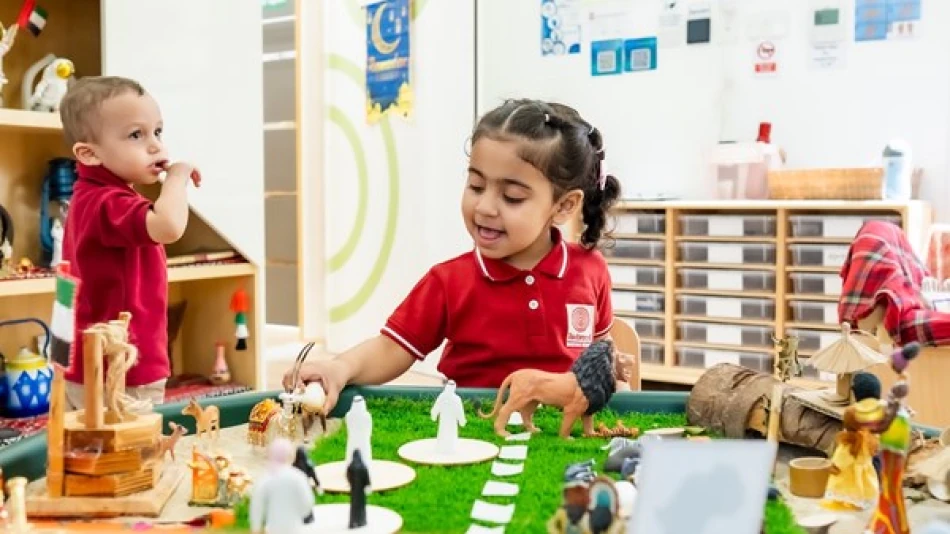
Embracing Emirati Culture: Redwood Montessori's New Campus Integrates UAE Traditions into Montessori Curriculum
UAE's Cultural Identity Takes Root in Early Childhood Education
A new Montessori nursery in Mohammed bin Zayed City is pioneering an educational approach that weaves Emirati heritage into internationally recognized early learning methods. The Redwood Montessori branch represents a growing trend across the Gulf region where nations are prioritizing cultural preservation alongside global competitiveness in education.
Balancing Heritage with Global Standards
The nursery's approach reflects a broader challenge facing rapidly developing nations: how to maintain cultural identity while preparing children for an interconnected world. By incorporating traditional Emirati elements—from pearl diving role-play activities to heritage-inspired architecture—the facility creates what educators describe as a "culturally familiar environment" that still meets international educational standards.
This model mirrors similar initiatives across the Gulf Cooperation Council countries, where governments are investing heavily in education that preserves local identity. Saudi Arabia's Vision 2030 and Qatar's National Vision 2030 both emphasize cultural preservation in education, while the UAE's own national identity initiatives have been expanding from public schools into private early childhood education.
Market Response to Cultural Education Demand
The emergence of heritage-focused early education reflects changing parent priorities in the UAE's competitive nursery market. Emirati families, who represent a minority in their own country's population, are increasingly seeking educational environments that reinforce cultural values while maintaining international standards.
This demand has created a niche market opportunity. Private education providers are recognizing that cultural authenticity can be a differentiating factor in a sector where international curricula have traditionally dominated. The approach suggests a maturing education market where local identity becomes a premium offering rather than an alternative to global standards.
Investment in Emirati Educators
The facility's emphasis on hiring Emirati teachers addresses a critical workforce development challenge. The UAE has been working to increase local participation in education sectors, particularly in roles that shape young minds. By positioning Emirati educators as cultural ambassadors, such initiatives contribute to broader economic diversification goals while ensuring authentic cultural transmission.
Regional Context and Implications
The UAE's approach to cultural education in early childhood contrasts with strategies in other international education hubs. While Singapore emphasizes multilingual competency and cultural diversity, and Switzerland focuses on local language preservation, the UAE model specifically addresses the challenge of maintaining minority cultural identity in a highly cosmopolitan environment.
This educational philosophy could influence policy discussions about national identity requirements in private education. The nursery's proactive alignment with potential government cultural standards suggests that private providers anticipate more formal regulations around heritage education—a trend already visible in the public school sector.
Long-term Cultural and Economic Impact
The integration of heritage elements into early childhood education represents more than nostalgia—it's a strategic investment in cultural continuity. Children who develop strong cultural foundations early are more likely to become engaged citizens and cultural ambassadors as adults, potentially strengthening the UAE's soft power in international relations.
From an economic perspective, culturally grounded education could foster innovation that draws on traditional knowledge systems while meeting modern challenges. The UAE's emphasis on cultural identity in education may produce a generation better equipped to navigate between local values and global opportunities—a critical skill in an economy built on international connectivity.
The success of this model will likely influence expansion decisions by other international education providers operating in the Gulf region, potentially reshaping how cultural identity is integrated into early childhood education across the broader Middle East market.
Most Viewed News

 Layla Al Mansoori
Layla Al Mansoori






